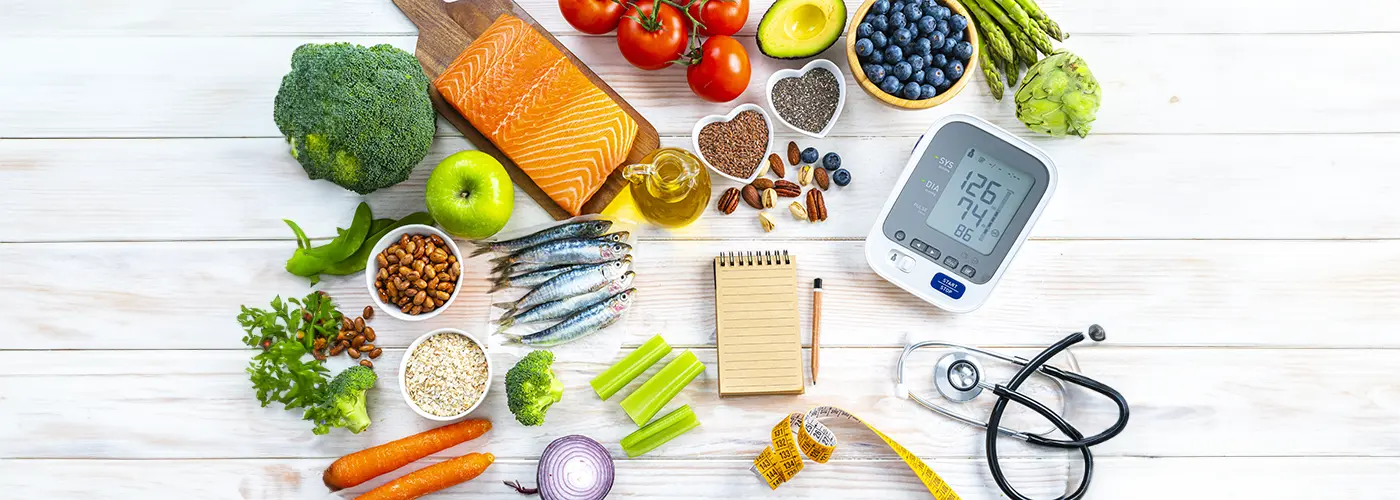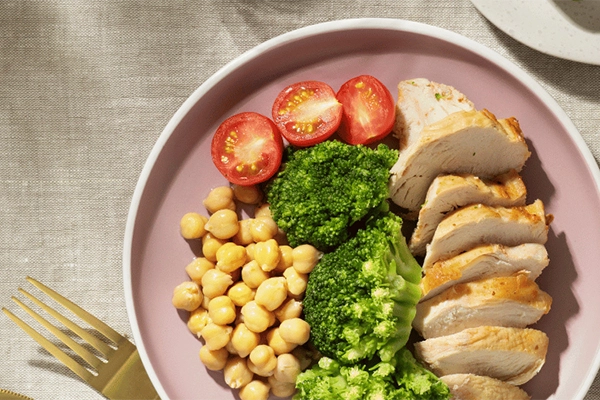Topics
We live in a fast-paced world, and snacking has become integral to our daily lives. Whether it is a quick mid-morning energy boost, or an afternoon treat, the snacks we choose profoundly affect our overall well-being. It is, therefore, essential to make wise snack choices.
In this article, we will enlist 10 heart-healthy snacks that not only help to make the taste buds happy but also help to make your heart stronger.
Why Is Heart Health Important?
The heart is undoubtedly the powerhouse of the human body; it is responsible for pumping oxygen and blood to every part of the body. This mechanism ensures that all organs receive essential oxygen and nutrients to function correctly.
A healthy heart also contributes to vitality, energising you and ensuring that you lead an active and fulfilling life.
What Are the Nutritional Needs for a Healthy Heart?
Heart-healthy food is a category of dietary choices that help to support cardiovascular well-being. Heart-healthy foods have specific nutrients that help reduce heart disease and promote cardiovascular health.
Following are some essential nutrients that should be present in your food choices to maintain good cardiovascular health:
- Rich in ‘good’ or healthy dietary fats like omega-3 fatty acids.
- Commonly found in flaxseeds and fish such as salmon.
- ‘Good’ fats play an important role in improving the heart’s overall health, lowering blood pressure, and reducing inflammation.
- High in dietary fibre.
- Fibre helps keep the heart healthy by binding to cholesterol and removing it from the body.
- Abundant soluble fibre is present in oats, beans, and fruits.
- High in vitamins and minerals.
- Potassium is vital in maintaining the heart rhythm and regulating blood pressure.
- Calcium is necessary to ensure the smooth contraction and relaxation of the heart muscles. Calcium is abundantly present in green leafy veggies and dairy products.
- Magnesium helps in the proper functioning of heart muscles and to maintain a steady heartbeat. The sound sources of magnesium include nuts, seeds, and green leafy vegetables.
- Vitamin D plays a vital role in normal heart functioning, reducing inflammation, and regulating blood pressure. Vitamin D is present in cereals and dairy products.
- The B Vitamins are essential to maintain good cardiac function. Vitamin B6, B12, and folate can increase the risk of heart disease. Vitamin B is present in meats, legumes, green leafy vegetables, etc.
- Abundant in antioxidants.
- Antioxidants help to protect the heart from oxidative stress and inflammation. Antioxidants are present in fruits, nuts, and vegetables.
- Coenzyme Q10 (CoQ10) is an antioxidant whose role is to help the heart maintain muscle strength and generate energy. It is found in small amounts in fish, whole grains, meat, etc.
- Phytosterols are plant compounds found in foods like nuts, seeds, and whole grains. It can help lower LDL (harmful) cholesterol levels, reducing the risk of heart disease.
- Low in saturated fat and cholesterol, and low in sodium to maintain blood pressure levels.
What Are the TOP 10 Heart-healthy Snacks Recommended by a Dietitian?
Let us look at some essential healthy snacks that you could have to keep your heart muscles healthy and strong.
- Packed with healthy fats, fibre, and antioxidants.
- Reduce inflammation and lower cholesterol levels, thereby reducing the risk of cardiovascular diseases.
- Examples: almonds, walnuts.
- Packed with numerous antioxidants (Vitamin C, polyphenols) that help fight harmful free radicals in the body and reduce oxidative stress.
- Flavonoids help improve blood vessel function, promote vasodilation, and reduce blood pressure.
- Rich source of fibre that helps to remove bad cholesterol from the body and improve cardiovascular health.
- Examples: strawberries, blueberries, raspberries.
- Rich in monounsaturated fats, specifically oleic acid.
- Helps lower LDL (bad) cholesterol levels and increase HDL (good) cholesterol. This ultimately helps minimise plaque build-up in the arteries and reduce any risk of heart disease.
- Rich in several heart-protective nutrients (potassium, lutein, zeaxanthin).
- Abundant sources of heart-healthy fats, especially omega-3 fatty acids, which help reduce triglyceride levels and inflammation.
- High amounts of dietary fibre, which can lower the LDL cholesterol levels.
- Various vitamins and minerals (potassium, magnesium, calcium) that support heart health.
- Examples: sunflower, pumpkin, chia, flax.
- Apples are rich in soluble fibre that can lower the body’s bad cholesterol (LDL). Soluble fibre binds to cholesterol molecules and helps its removal from the body, minimising the risk of plaque build-up in the arteries.
- Both peanut butter and apples contain healthy monounsaturated fats and omega-6 fatty acids, which are highly helpful in maintaining optimal cholesterol level and overall cardiovascular health.
- Rich in soluble fibre, especially beta-glucans which helps to lower the LDL (bad) cholesterol, thereby improving cardiovascular health.
- Packed with essential nutrients such as minerals, vitamins, and antioxidants that collectively contribute to cardiovascular health.
- Oatmeal is very versatile and can be customised to suit your taste preferences. You could add toppings such as nuts, seeds and berries for an extra taste and nutritional boost.
- High in omega-3 fatty acid. Omega-3s, particularly alpha-linolenic acid (ALA), can promote heart health by lowering triglyceride levels and reducing inflammation.
- Contain soluble fibre, which binds to bad cholesterol and helps in its elimination from the body.
- A rich source of plant-based protein, which offers a balanced nutrient profile and supports heart health.
- High in antioxidants known to improve heart health by reducing inflammation, improving the blood flow, and protecting the blood vessels from any damage caused by oxidative stress.
- If you opt for dark chocolate for your snacks, do consume in moderation and ensure it has a cocoa content of 70% to maximise the health benefits.
- A well-known probiotic food with an active culture that helps improve gut health.
- A healthy gut microbiome is increasingly linked to overall well-being, including cardiovascular health.
- Rich in fibre and essential minerals and vitamins.
- Rich in complex carbohydrate, providing good energy while maintaining stable blood sugar levels by preventing sudden crashes and spikes.
Read more: Dietary Guidelines for Cardiovascular Health

How to Incorporate Heart-healthy Snacks into Your Diet
The following are some valuable tips to seamlessly incorporate healthy snacking into your routine.
- Planning
- Allocate a portion of your snack preparation time for planning in advance to prevent impulsive eating in between meals.
- Chop fruits or create nut portions in advance and refrigerate them in sealed containers.
- If you have these snacks readily available, chances are less likely that you might go for less nutritious options when hungry.
- Portion control
- Although heart-healthy snacks are nutritious, it is essential to control the portions because overeating can result in excess calorie intake.
- Be mindful of the portion sizes and control your intake is by using portion-sized bags or smaller containers to prevent overeating and keep your snacking in check.
- Embrace variety
- By adding variety to your snacks, you can keep your taste buds engaged and ensure you receive a broader spectrum of nutrients.
- Rotate between fruits, seeds, and nuts, which helps to keep snacking exciting.
- Read labels
- If you buy packaged snacks from the store, be sure to check the nutrition label for any artificial flavours or added sugars.
- Keep an eye on the sodium levels in the packaged product, especially if you have high blood pressure. Make sure that you choose unsalted or low-sodium options when available.
Make an Appointment at Pantai Hospitals
Integrating healthy snacks into your daily routine is a practical and effective way to support the well-being of your heart. By embracing these snacks and incorporating them into your diet, you are nurturing your heart, ensuring it thrives with every beat.
With each heart-smart choice, you are crafting a future filled with vitality and well-being.
Get in touch with us to book an appointment today for a consultation, or find out more about our Cardiology Care Services at your nearest Pantai Hospital.
Pantai Hospitals have been accredited by the Malaysian Society for Quality in Health (MSQH) for its commitment to patient safety and service quality.
This article has been medically reviewed by Dietitian, Nurul Aisyah Roslan.












